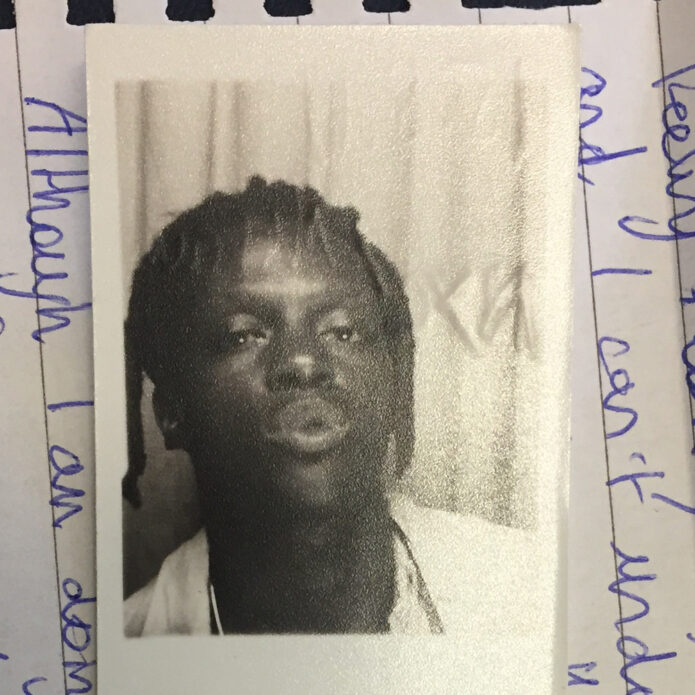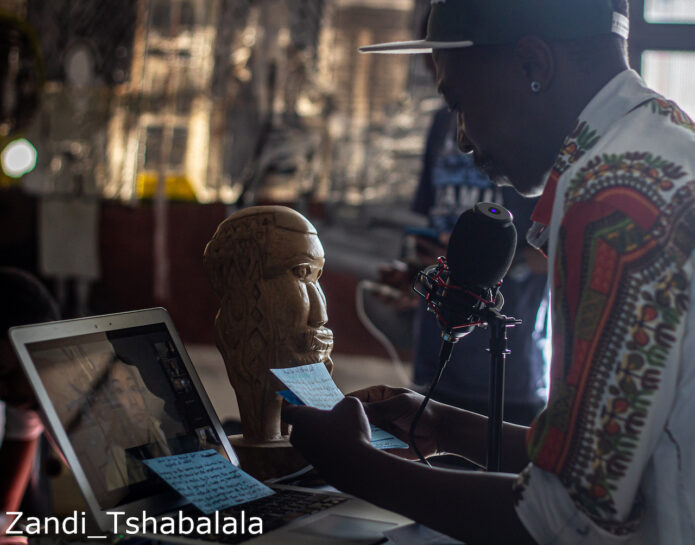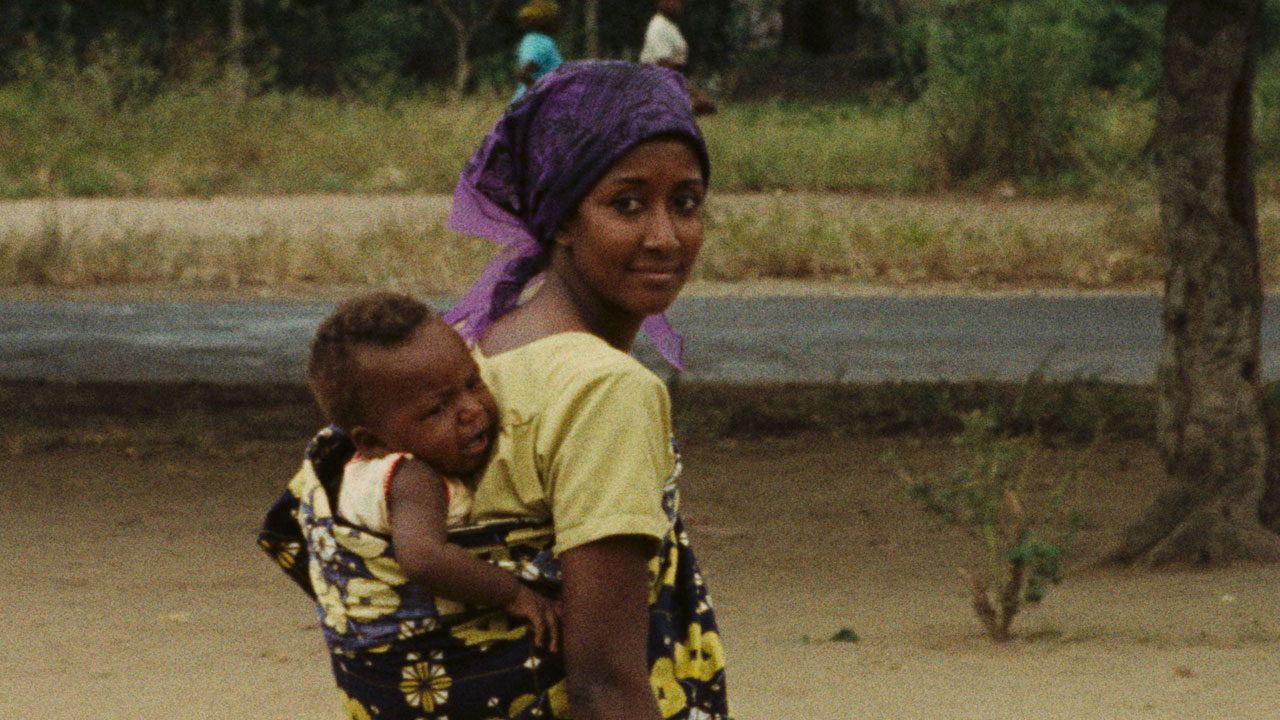 Still from Sambizanga (1972) dir. Sarah Maldoror
Still from Sambizanga (1972) dir. Sarah Maldoror Report: Decolonial Futures with Aditi Jaganathan
Decolonial Futures is an educational programme organised between Framer Framed, the Sandberg Instituut, the Gerrit Rietveld Academie and Funda Community College in Soweto, South Africa. The first term of Decolonial Futures 2021-2022 consists of three hybrid sessions at Framer Framed taking place from November to December. Participants will work towards the making of a documentary whose format and content will be informed by guest filmmakers, writers and artists. The second session was a workshop given by Aditi Jaganathan at Framer Framed. Petra Parčetić was present to report. Read more about it below.
Decolonial Futures: Film Screening with Aditi Jaganathan
How can we build on the sacrifice of our ancestors?
23 November 2021
Rather through a spontaneous conversation, the second session of Decolonial Futures was opened by Ibrahim Cissé in person, while Dr. Aditi Jaganathan joined virtually. Firstly introducing each other, Ibrahim and Aditi gave an insight to the audience about their practices within the field of decoloniality, as well as their personal relation to it.
The workshop moderators initiated a round of introduction for the participants as well, which made the atmosphere more organic and familiar. Aditi then turned to the core content of the lecture that was focused on creative outlets of the colonial struggle – told by the African diaspora. Aditi specifically touched upon the medium of film, thus the Third Cinema and its creators. In her insightful presentation, Aditi emphasised the importance of its existence not only for the development of arts and culture in Third World countries, but for the society as well. One of the fascinating elements for Aditi was the ongoing question that these films pose, and that is how can we build on the sacrifice of our ancestors?
In this light, Dr. Jaganathan introduced the participants to the excerpt of the 1972 film Sambizanga, directed by a Guadeloupean-French filmmaker, Sarah Maldoror. The film’s plot is situated in Angola during the Angolan War of Independence. However, Aditi invited participants to reflect on the broader picture of revolutionary spirit and the obstacles which come with the rebellion. The notion of loneliness as a consisting element of the revolution was discussed, thus how the sacrifice of the individuals in the revolution is a trigger for the collective uprising.

Still from Sambizanga, diractor: Sarah Maldoror (1972)
Furthermore, Aditi highlighted the role of (working-class) women in the fight for decolonisation through which the plot of Sambizanga was portrayed. Although frequently neglected, Aditi accentuated that the role of women in anti-colonial struggle is beyond significant, and if put into the foreground in the fight for liberation, makes the statement of the anti-colonial movement stronger.
Ibrahim’s focus of thought was centred around collective responsibility that we are left with in the postcolonial world (which is still, in many ways, colonial). In line with Aditi’s starting question about working with our ancestors’ legacy, he added that the lack of action might mean the postponing of our responsibilities. Ibrahim emphasised the significance of perseverance in the struggle through the analysis of the case of Soweto art school in South Africa, which besides many struggles managed to self-sustain and continue to improve the cultural landscape of South Africa and its youth.
Dr. Jaganathan continued on that note, as she invited the participants to think about the movie’s depiction of the power of the collective. This implied that the process of decolonisation is strengthened through mutual support and collaboration. Turning to another form of art expressed in film, thus music, Aditi was intrigued by the lessons it can teach us for better societal functioning. Inferring ensemble, collective and adaptability along with improvisation from jazz and its ethics, Aditi invited participants to think about the ways music and creative expression can teach us lessons on decolonising practices. When it comes to the notion of musical/performative elements in the film, both Aditi and Ibrahim discussed the role of music in the anti-colonial fight. They concluded that art and music still remain in their purest form, untouched by the destructive power of colonisation, thus the film displays how they represent a safe haven free from occupation. Their conclusion, as well as illustrative film scenes of music and dance present even in hardest times suggest art as a driving force for a decolonial future.
Read the report on Sara Blokland’s lecture.
About this semester
The 2021-2022 programme is focused on documentary as a medium of both de/colonial practices of making, representing and looking. This year, Decolonial Futures will also be punctuated by the Winter School, a 10 days long programme in 2022 in which participants from South Africa and the Netherlands will have an opportunity to meet in Amsterdam and to collectively ponder on the materialisation of the colonial remnants and decolonial strategies in everyday life. The on-going work and discussions will be restituted to the public at the end of the programme.
The focuses of the first term explore:
- (1) What are the ways in which the colonial affect you/your environment in day to day life?
- (2) How could you capture that feeling/observation/relation?
- (3) How does documentary, as a medium, participate in de/colonial practices of making, representing and looking? How can the medium become a tool for empowerment?
- (4) What methodology can you think of/do you want to apply in the making of a documentary?
Classes will take place at Framer Framed in Amsterdam, where we will host a series of screenings, talks and workshops by individuals whose practices engage with narratives of de/colonialism, their histories and their current unfolding.
In parallel, participants at Funda Community College in Soweto will work on archival material accumulated over the years of DF since the inception of the programme and will reflect on their experience, the feasibility and limitations of decolonial educational endeavours and the cross cultural exchange that attempted to address it.
The two groups will offer their insights and their work in progress to one another, although the final outcome of both documentaries will be dependent on the quality of the exchange and inclination of all participants.
Action Research / Shared Heritage / Colonial history / South Africa /
Agenda
Decolonial Futures Workshop Series: The Womb Republic - How to Rebirth
A cultural exchange programme with Funda Community College, Soweto, South Africa
Decolonial Futures Winter School: Creating Space for a Hundred Flowers to Bloom
A cultural exchange programme with Funda Community College, Soweto, South Africa
Decolonial Futures: Workshop with Ariella Aïsha Azoulay
First term of the Decolonial Futures programme 2021-2022
Decolonial Futures: Workshop with Aditi Jaganathan
First term of the Decolonial Futures programme 2021-2022 with selected Artist Talks
Decolonial Futures: Workshop with Sara Blokland
First term of Decolonial Futures programme 2021-2022
Network
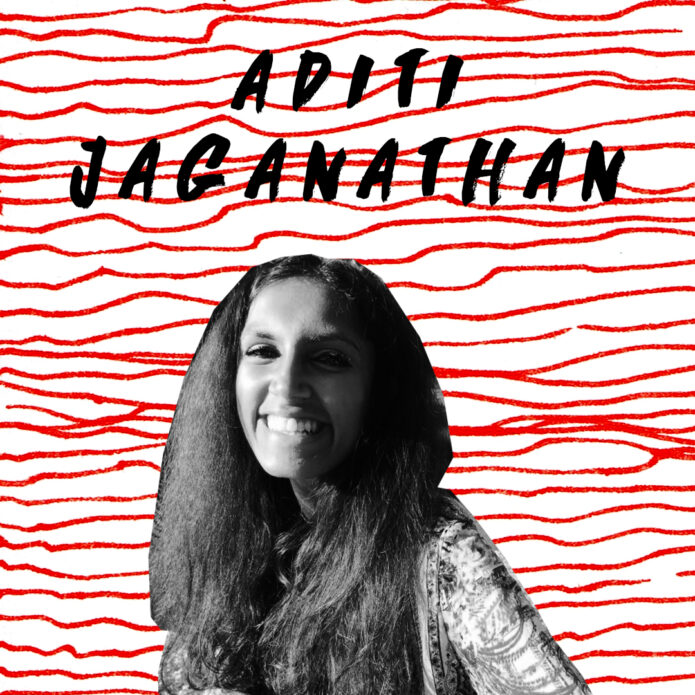
Aditi Jaganathan
Activist, Educator
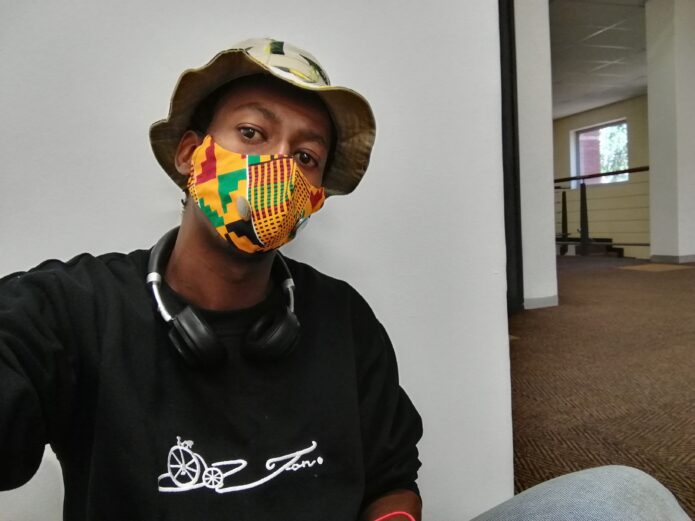
Simangaliso Sibiya
Artist, curator and educator
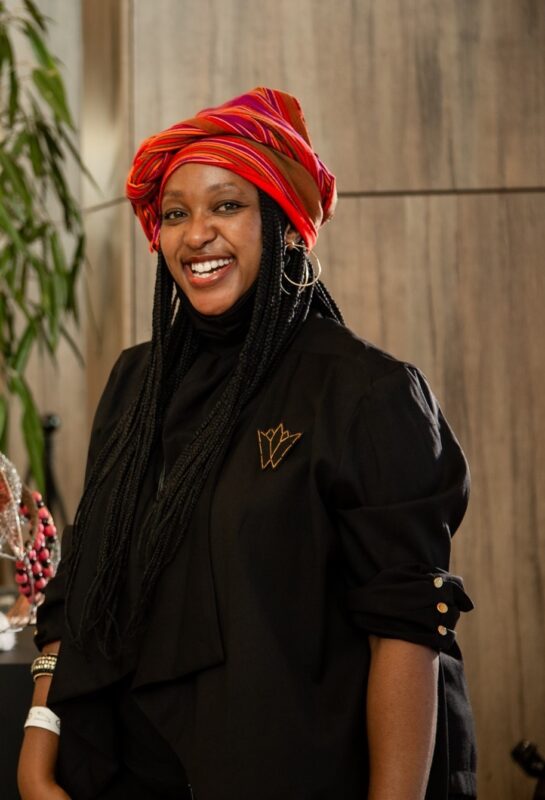
Phumzile Nombuso Twala
Writer, Educator
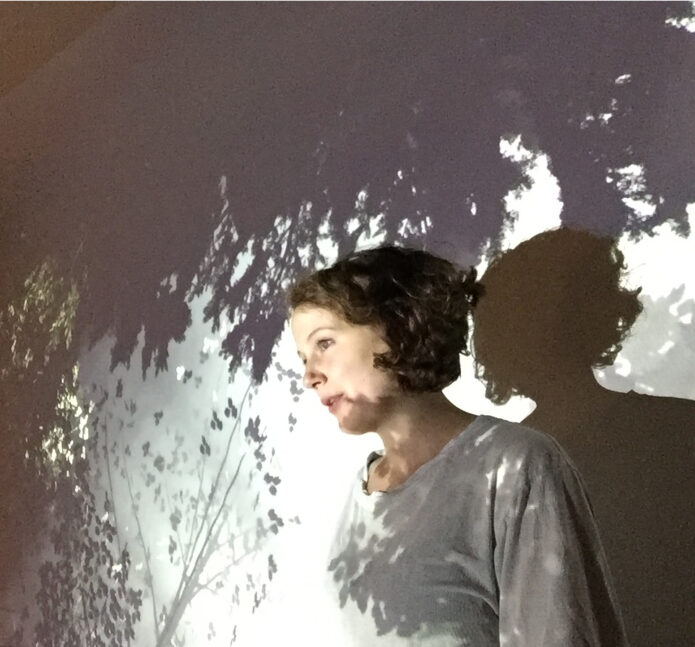
Dorine van Meel
Artist, Writer, Educator
